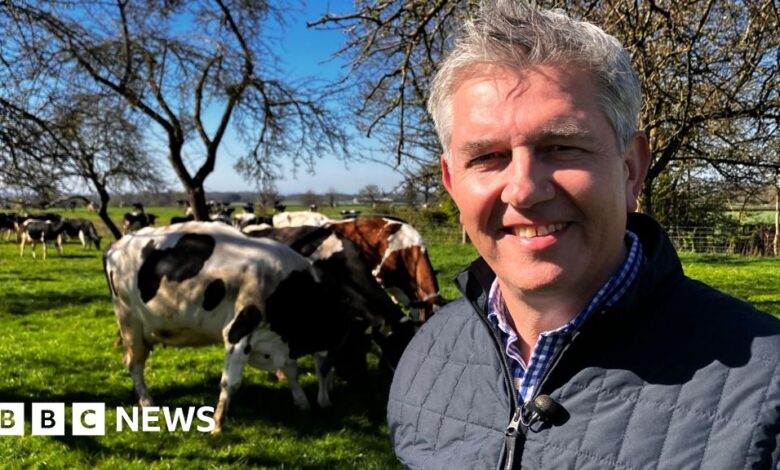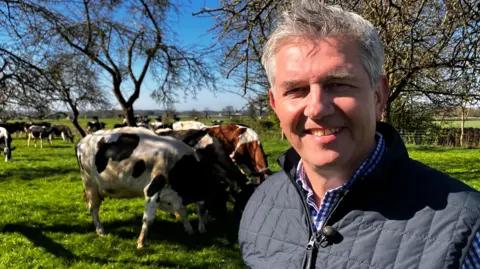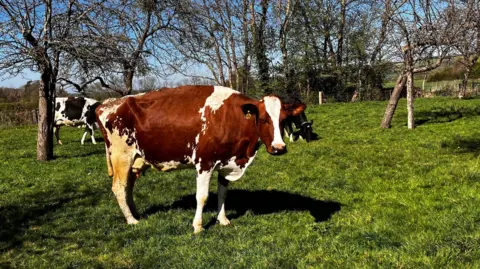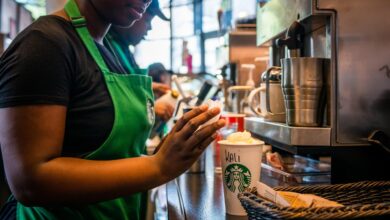‘Be careful, Sir Keir’ – Cheesemaker’s warning on trade deal

Business and Environment Correspondent, BBC West
 BBC
BBCOne of Britain’s largest cheesemakers has cautioned the government against hastily striking a trade deal with the US.
Giles Barber’s family has been in business in Ditcheat, Somerset, since 1833 and has emerged as the UK’s primary exporter of cheese to the United States.
Despite his cheddar being subjected to the new 10% tariff on all imports from the UK into America, Mr Barber advised the prime minister to proceed cautiously with a free trade agreement.
“Be cautious, Sir Keir,” he urged. “I would prefer to see thorough consideration and deliberation over the terms of that agreement, rather than rushing into it.” The Prime Minister has affirmed that he will only endorse a deal “if it serves the national interest”.
Barber’s Cheddar Cheese directly employs 400 individuals and sources milk from 150 family-run farms in Somerset.
“We uphold some of the highest standards globally for our farmers,” stated Mr Barber, “in terms of animal welfare and environmental conservation.
“I want to ensure their protection in any future trade deal.”
Farmers are concerned that British regulations, such as the prohibition on injecting cows with hormones, may not be adhered to in the US.
If the UK were to enter into a comprehensive free-trade agreement with the US, American beef, chicken, or dairy products might be more affordable here, as they are produced to lower standards.

Farming unions have also cautioned about the perils of “hastily seeking a trade deal”.
The presidents of the National Farmers’ Union for England, Wales, Scotland, and Northern Ireland issued a joint statement.
It stated: “Absolutely no one wants to see hormone treated beef, or pork, or chicken treated with anti-microbial washes – which are prohibited here in the UK – sold in our market.
“These methods of production were banned in the 80s and 90s for a reason. They do not align with our values and the farm-to-fork approach we take pride in in the UK, something we know the British people deeply care about.”

The British government has consistently promised not to compromise on standards in any trade agreements. The prime minister recently reiterated his commitment not to finalize a deal “at any cost”.
Sir Keir Starmer remarked: “I will only agree to a deal if it benefits the nation.”
When questioned in more depth about diluting food and farming standards, Jonathan Reynolds, the Business and Trade Secretary, stated: “The framework we have established in the UK, our food standards framework, that is non-negotiable for us.
“That is a crucial area that we cannot compromise on. And the US acknowledges that.”
Selling truckles in a trade war
Until a trade agreement is reached between Sir Keir Starmer and Donald Trump, truckles of Somerset cheddar will be slightly more expensive in Texas.
Over the past 15 years, Mr Barber has expanded his sales in America. Barber’s cheddar is regarded as a premium product, and he has some experience navigating through a trade war.
In 2019, a dispute between the US and the EU erupted over aircraft. Boeing accused the EU of subsidizing Airbus planes, and President Donald Trump imposed a 25% tariff on various European exports, including cheese.
“There was a short-term impact on demand,” Mr Barber recollected. “But it rebounded over the course of a year.”
So what sets this situation apart? Primarily, Mr Barber noted, the trade war is global. Every import into the US will incur higher costs, resulting in “numerous price hikes for the American consumer”.
If Americans have less disposable income, they may opt for less expensive domestic cheese brands over fancy foreign ones.
Nevertheless, he remains optimistic that “although we may witness some initial impact, it will stabilize over time”.







